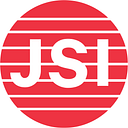Reflections from the Vaccine Frontlines: Communities in NH and VA come together to meet people’s needs
We hear a lot in the media about the ongoing challenges with COVID-19 vaccine distribution: managing the complex cold chain requirements of multidose vials; countering anti-vaccination messaging; overcoming vaccine hesitancy; and confronting gross inequities in vaccine distribution.
But at the local level, “where the vaccine gets into arms,” a lot is going right and a lot that has been learned.
JSI staffers Amy Cullum, a nurse, and Laila Akhlaghi, a pharmacist, reflect on their experiences volunteering as Medical Reserve Corps (MRC) members at points of dispensing (PODs) for the COVID-19 vaccine in Virginia and New Hampshire.
Amy Cullum/New Hampshire: The success I see is the way that partnerships and relationships forged over years of planning have activated to protect our communities. In the PODs I’ve participated in, we see emergency medical service, school, and senior housing staff; health care providers, and MRC members — some coming out of retirement — pulling together to manage the site, draw up vaccines, and get people vaccinated.
At the same time, community partners provide critical links to NH’s most vulnerable people, helping us improve equity by communicating the benefits of vaccines, helping scheduling vaccination appointments, and hosting PODs themselves. The enthusiasm of both staff and the public is palpable at every clinic.
SARS-COV2 has presented all of us with a tremendous learning curve. This is true down to the clinic level: there are constant rapid-cycle improvements being made as we work on new and better ways to do things like maintaining social distancing within the facility; managing traffic at drive-through PODs; and tracking syringes drawn up for administration. Through teamwork, NH POD staff are confronting that curve.
Laila Akhlaghi/Virginia: I’ve been vaccinating or reconstituting vaccines for vaccinators as a volunteer since January 2, 2021. I’ve also witnessed the improvements made at the Fairfax County POD. As new evidence and vaccines emerge, standard procedures, patient questions, and contraindications are updated and emailed to all staff and volunteers. Every weekend, procedures for the mass vaccination POD are updated to increase efficiency and decrease waste. I’ve learned to ask for and expect changes each weekend and while I sit and reconstitute vaccines, I learn why the change in procedures was made.
As we move from the elderly to other segments of the population, lines are moving faster and there is less skepticism as evidence of the safety and efficacy of the vaccines grows. And through it all, I see enthusiasm and gratitude: after a year of extreme caution, people are finally getting protection from SARS-COV2.
Each of us can contribute to this protection by getting vaccinated, educating those around us about the vaccines, and/or volunteering at our local MRC. Much like the local restaurants that regularly provide us lunch and dinner, one community supports another, and that’s a real shot in the arm!
Amy Cullum is a senior consultant who focuses on emergency preparedness in JSI’s New Hampshire office. She has been on the frontlines of the state’s COVID response since February 2020, helping to manage case investigation efforts and develop vaccination plans for people who are homebound.
Laila Akhlaghi is a senior technical advisor for JSI’s International Division. While her work primarily focuses on international family planning and supply chains, as a pharmacist, Laila saw the opportunity to assist with the local COVID vaccine roll-out and (literally) plunged in.
